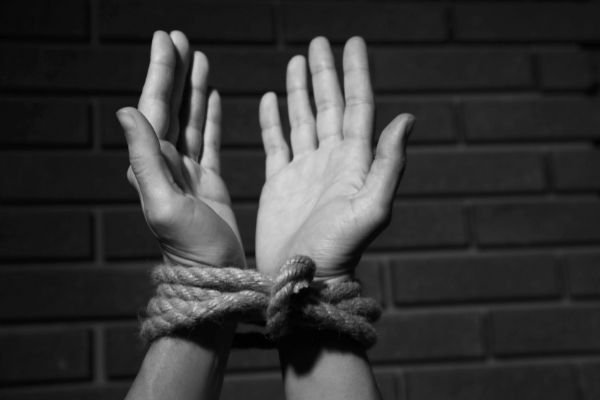Making change often means going out of your comfort zone. Dealing with something as all-encompassing as addiction likely means that you’ll have to go way, way out of it. Despite knowing this when they attend their first Alcoholics Anonymous (or similar addiction support group) meeting, attendees sometimes balk at the first step: admitting powerlessness. They view it as a great insult and assault on their character while others approach it from the other end of the spectrum, seeing it as an excuse that their “lack of power” justifies that troubling behavior.
Neither of those beliefs is correct.
In this article, we’ll explain the definition of powerlessness and why it’s so important in AA’s twelve steps process. Keep reading if you’re looking to get the most out of your Alcoholics Anonymous experience and make breakthroughs in your battle with substance abuse.
What Does Powerlessness Mean?
Step One of Alcoholics Anonymous: “We admit we are powerless over alcohol – that our lives have become unmanageable.”
The concept of powerlessness can seem quite foreign, especially to those from countries like America whose culture idolizes independence and raising one’s self by their bootstraps. But powerlessness is not the same thing as weakness; it isn’t something to be feared or despised. It also is not a lack of agency that implies we are helpless when it comes to choosing between right and wrong.
Powerlessness is simply a lack of control. It applies both to our inability to abstain from using a substance or engaging in certain behavior as well as limiting its quantity. While the realization might be painful and challenge the idea of who we imagine ourselves to be, it’s impossible to solve a problem without first acknowledging the scope and scale of the issue.
Why Does Admitting Powerlessness Matter?
Admitting this, as Step One of AA urges us to do, requires us to grapple with a fact that might not have been fully accepted as an addicted person: That we do not have control over our substance abuse. Subconsciously, we might feel like our drug use habits are a choice, a matter of us (constantly) giving into temptation or being pushed by some external trigger like a bad day at work or a fight with our significant other. We trick ourselves into thinking it’s not that we can’t stop drinking or using drugs, but just that we don’t want to give it up yet.
This couldn’t be further from the truth. Our body (and brain) inherently seek self-preservation; we recoil from pain, avoid things we view as dangerous and feel good when engaging in activities that are healthy like exercising or eating vegetables. To think that we are of sound mind when we repeatedly engage in habits like drug use that so quickly destroy us from the inside out is nothing short of delusional–a result of drugs having hijacked our thinking. Admitting powerlessness means shattering this false belief.
Further, by accepting that there are things that we cannot control, including our drug use, we open ourselves up to receiving the help of others. Coming to this understanding will make you much more receptive to looking to sources outside yourself for recovery, such as your sponsor, your fellow group members, or your Higher Power. All of which makes you more receptive to learning and healing, which in turn makes it much easier to follow through with the remaining twelve steps of AA.
No Man Is An Island: The Importance of Accepting Help From Others
So you understand the benefits of Step One and of admitting powerlessness, but the next question then is why is such emphasis placed on being reliant on others to get yourself out of addiction? The philosophy behind this thinking is that your judgment was flawed enough to get yourself into this situation, it’s too flawed to get yourself out of it.
Let’s put it another way: Imagine you have a friend who’s bankrupt and penniless, but they want to give you financial advice and handle all your money. You probably wouldn’t be too keen to let them, would you? Solely relying on yourself to overcome drug addiction is effectively the same thing. It’s not to say that you’ll never be able to manage yourself and make good decisions in the future, but right now in your current state of mind, you’re not in the best position to make good decisions for yourself.
If you’re struggling with drug or alcohol addiction and are trying to overcome it on your own, give 12 step meetings a chance. Find an AA meeting near you to hear from others in a similar position and receive judgment-free support.
